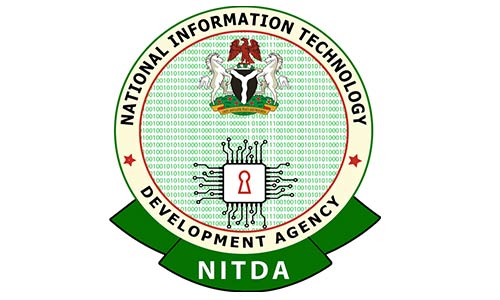63 Years After, Reps Pass New Customs And Excise Act

Chairman, House Committee on Customs and Excise, Leke Abejide (ADC, Kogi) said yesterday the Customs and Excise Management Bill passed into law by the House will curb the smuggling of arms and other illegal substance when signed into law.
The House repealed the 63-year-old Customs and Excise Management Act, passing into a law a new bill that will ensure that subsequent Comptrollers-General of Customs are appointed from the service.
The House also approved a budget of N369.136 billion for that NCS for the 2022 fiscal year.
The new bill will also ensure that the National Assembly will make input into the appointment of the Comptroller General as it is done with other security agencies.
The bill with 283 clauses was passed by the House through voice vote and will ensure increased revenue.
Presenting the bill for consideration in the floor of the House, Abejide said the passage of the bill was the first major legal reform in the Customs Service legal framework in 63 years.
He said the old Act, which came into force in 1959, has become obsolete in the competitive global world and work against effective operations of the service.
According to him, the new Act seeks to reposition the Nigeria Customs Service for improved efficiency and service delivery making full automation in line with modern reality, adding that it will facilitate trade and improve revenue generation for the service.
He said further that the bill, when signed into law by the President will expose illegal arms and ammunition import.
He explained that the bill consolidates Customs and Excise legislations into a single compendium of Customs & Excise Act to facilitate easy reference and easy knowledge driven Customs and Excise policies
He said further the law will position the NSC to be financially stable and be enable to recruit the required number of officers for their operation, adding that as a result of lack of money, the service could only boast of 15,349 officers instead of 30,000 it needed to function optimally
He said when the law comes into operation, the seven per cent cost of collection from the Duties, which is not enough for its operations, will be replaced with four per cent Free On Board (FoB) value of imports according to international best practices.
This, he said, would address funding problems in the service and help reposition it for improved efficiency and service delivery.
It will provide stiffer punishments for offenders to act as deterrence for serious economic crimes of Customs and Excise-oriented, thereby encouraging more revenue in fines payment.
He explained that in view of the economic importance and security implications the occupier of the office of Comptroller-General of Customs connotes to economic and security development, there should be Legislative input into the appointment of Comptroller General of Customs similar to other organisations like Inspector General of Police, Nigeria Immigration Service, and the Service Chiefs.
He explained further that the bill also make provision for Arbitration Panel for the purpose of dispute resolution to reduce multiplicity of cases at the court of law relating to customs issues, saying “a situation whereby dispute arose between the Nigeria Customs Service and a Stakeholder and is same NCS that will set up panel mainly comprising Customs Officers to judge, then justice is far from being served”.
Abejide said the bill provides for rejigging the Board of Customs and Excise Management with competent and result oriented technocrats for the smooth and fast operation of its functions, putting round pegs in round holes.
He said the bill will also boosting the morale of Customs Officers with incentives introduced to carry them along in the scheme of things from the Comptroller General down to the last employee of the Service in line with revenue generation institutions and service delivery mechanisms.
The law will also introduce new Excise collectable revenue avenues in line with the recently enacted Finance Act 2021 for the smooth operation, adding that the collection of Excise Duties on all carbonated drinks will now form part of the Bill for the Nigeria Customs Service to have adequate legal backing to function in this area.
He said “the aforesaid developments injected into this Bill is sufficient to implode economic development, facilitation of trade and greater revenue generation in tandem with the goal and target given to the Nigeria Customs Service in view of fiscal independence and autonomy our economy is yearning for.
“The most innovative inclusion into this Bill is the objectives of eradicating problems of corruption, fraud and malpractices together with inefficiencies and ineffectiveness in operation of the Service, which have hindered the desire to contribute maximally to the economic development of the nation.
“This Bill is in tune with ICT development which is going to give the Service the ICT demand it requires for its operations in line with international best practice. This would ensure a model that can think a thousand times faster and more efficiently than humans do”.
In approving the 2022budget for the Customs Service, the House also approved the recommendation that the Nigeria Customs Service be allowed to spend its share from the excess collection in 2021 fiscal year on the repair of 13 scanners prior to the commencement of the proposed E-Customs.
It said the repair will enhance maximum and effective examination of containers at the ports and other designated Nigeria Customs service formations to ensure trade facilitation and also ease the way of doing business in Nigeria.
Presenting the report for consideration by the House, Abejide said “in tandem with the medium-Term Expenditure Framework (MTEF) approved by the National Assembly, the projected revenue for the year 2022 Budget of N369.136 billion only need to be approved for the Nigeria Customs Service”.
The House approved seven per cent cost of collection for the year for the service, for the service being projected revenue available to the service.
It also approved two per cent VAT share and 60 per cent share of the comprehensive Import Supervision Scheme (CISS) of N60.121 billion for the 2022 intervention fund from (CISS) for the service to carry out infrastructural development across its formations.



